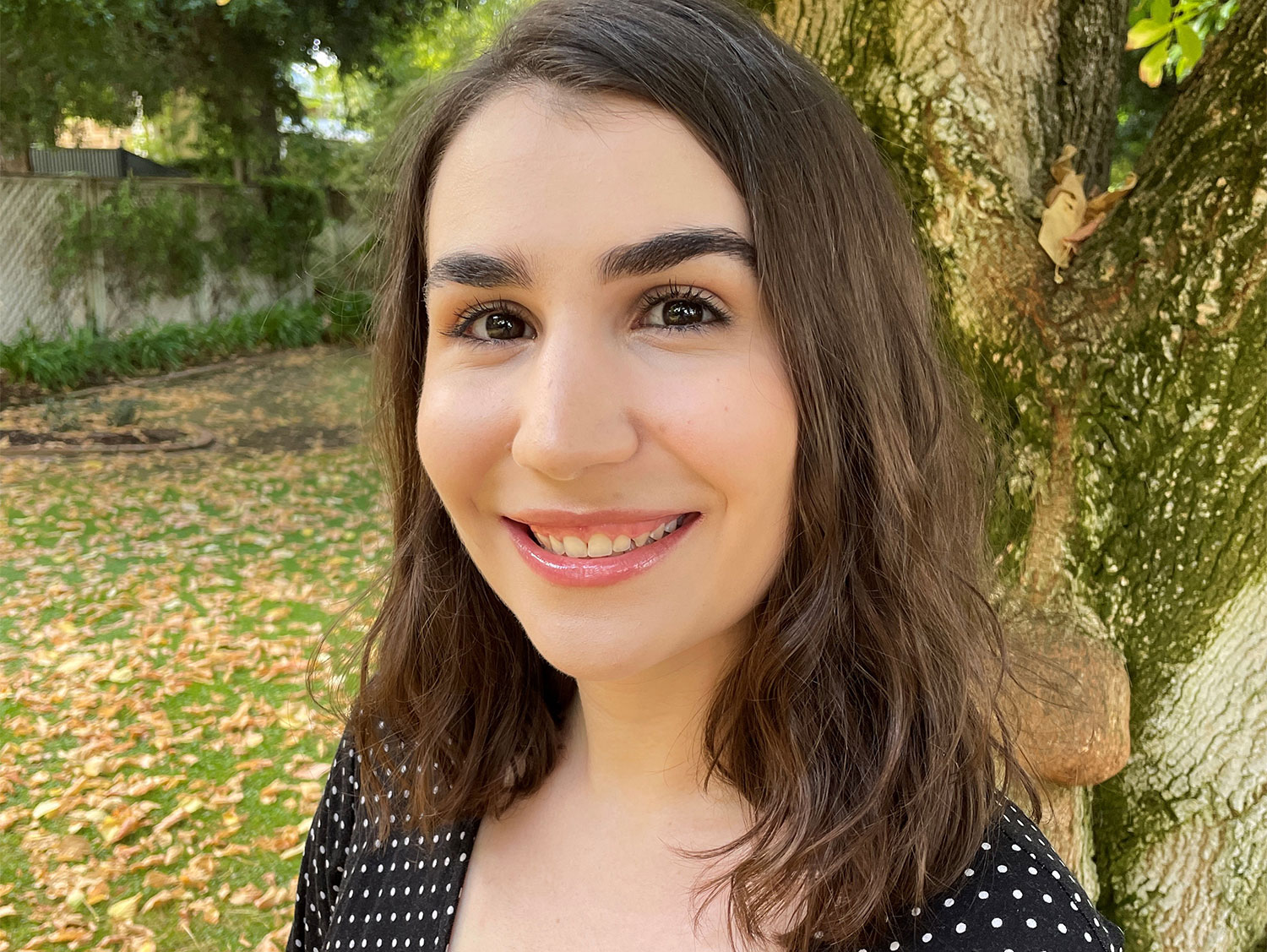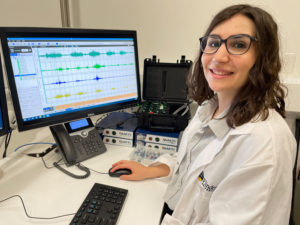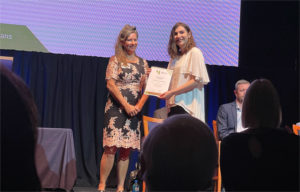
It was a workplace placement project that led to a masters pathway, which culminated in being awarded the best biomedical engineering project award at Flinders University’s annual innovation expo and now, a new job at Lockheed Martin. Flinders Alumni Philippa Tsirgiotis’ path through higher education was one of chances taken and opportunities seized, setting an example for those who follow in her footsteps.
“I was lucky to be awarded it with best Biomedical Engineering project for the Expo, which was a really great honour. Really grateful to my team as well for giving me this amazing project,” said Philippa of the project.
In her time studying a Bachelor of Engineering (Mechanical) (Honours), she was offered an opportunity to be involved with the development of a medical device known as a shoulder mobiliser as part of her five-month work placement at the latter end of her biomedical engineering degree. It was a concept in its infancy, the goal was to develop and test the device to improve outcomes for patients recovering from shoulder surgery.

“It wasn’t even quite at the stage that they could take it to an engineering consulting firm or anything like that, they thought it would be great to get a couple of students to jump on right at that bottom level and take this really early idea and develop it into something that would work and that could then move forward.”
Philippa worked with another student on the project as her 20-week WIL Project. After successfully developing the groundwork for the project she was offered a chance to continue developing the shoulder mobiliser. “I was asked if I wanted to continue working on the device for my masters – Master of Engineering (Biomed) – here and I thought it’s a great opportunity to have continuity work on something that could have a real-life impact to patients.”
From prototype development, measuring and testing, through to working with clinicians and patients, Philippa developed a wide range of skills that enhanced her credentials beyond a tertiary setting. “It really expanded my thinking to be able to try and step out of just my view and look at how every decision that was made on the journey with this product would affect the people who were going to use it down the line.”
There was also immense satisfaction of seeing her work deliver positive outcomes for patients. “It was great to see that I could actually make a difference through something that I’d spent a year creating. This was something that people could see a benefit to their own lives.”

As she launches her new career at Lockheed Martin, she also had time to reflect on her education pathway at Flinders. “(It) started when I was in high school and it had an amazing female physics teacher who really inspired me. I had two female maths teachers as well who really encouraged me to see how capable I was in those areas and from there I decided to go into engineering at Uni.
“(There were) female role models at uni as well. People who were doing research that I was involved with and everyone that I talked to. Everyone in the teaching teams and everything was always extremely supportive.
“I never felt sort of put down or discriminated against or anything. I felt like Flinders was a really amazing place to be a woman in STEM.
Beyond the supportive environment, Philippa also credits her success to an early tertiary realisation that becoming actively involved in the environment with Uni life would help in many facets of her development. “Just having that confidence because if you put yourself out there, you know there’s a lot that can happen for you.”
As for those who might want to follow in a similar path to Philippa, she has some great advice. “Get as much info as you can, things like open days, and enrichment events that we hold our really great. Also, hear more from people who are actually doing what it is you think you might be interested in. That can help with (pathway) the decision making. Finally, don’t be afraid to reach out too.”

